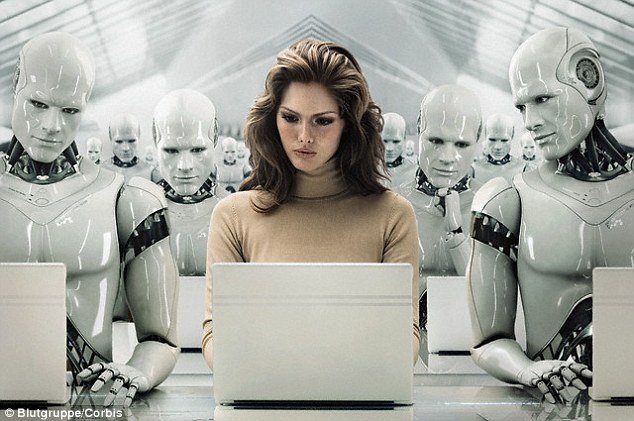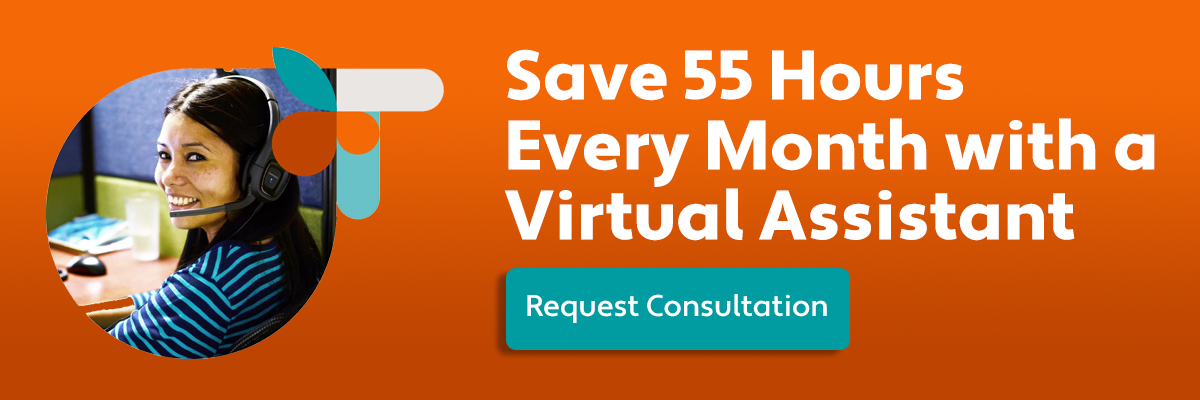“Technology isn’t destroying human work. It’s getting rid of work that lacks human thought."
Eric Taussig, CEO at Prialto
Recently, I wrote about the impact of artificial intelligence on administrative assistants, which outlined three ways AI enables assistants to be more productive on behalf of the executives they support.
On the heels of that article, we had our monthly Town Hall Meeting in which all three of our offices connect via a video conference call to discuss company-wide happenings and keep everyone up-to-date.
It’s a mixture of insight, inspiration, and forward movement. The goal is for everyone in the company to have a seat at the proverbial table and be heard.
During the Q&A portion of the meeting, one of our team members in The Philippines — Jun de Andres — asked if AI could cost him his job as an executive virtual assistant.
A Snapshot of the Positive Effects of AI on Executive Assistants
Jun’s question went straight to the heart of Prialto. So it was fitting that Prialto’s CEO, Eric Taussig, carefully and thoroughly addressed Jun’s concern:
“Artificial Intelligence is indeed advancing at an extraordinary pace. I believe that it will cause much disruption in the call center and BPO industries as the most basic, redundant jobs disappear. That's why Prialto is focused on work that benefits from human input. Scheduling is a perfect example.
Today, many of you are spending 80% of your scheduling time on the mundane aspects of this task, and only 20% of your time on the more creative and valuable aspects of scheduling (see Tactical vs. Strategic Table below). AI will allow us to reverse this ratio.
This should be good news for those of you who enjoy being thoughtful and creative. Machines will eliminate the ‘stupid’ mistakes in order to free up your time for more meaningful work. AI can also handle scheduling and managing calendars, which can free up the executive assistant's time for more important tasks. AI phone calls can also help with this by automating routine calls and scheduling meetings.
AI Won’t “Eventually” Replace Administrative Assistants
Eric’s thoughtful, pointed explanation highlights a core belief that technology will (should) drive humans toward the more strategic aspects of their professional (and personal) lives. While Artificial Intelligence may be faster and better at processing technical solutions than the vast majority of us, AI does not have our human capacity for pattern recognition, judgment, creativity, or personal touch.
Some argue that it will, eventually.
Yet when you unpack what “eventually” means, you end up in a distant future absorbed by existential questions meant to tackle the blurring line between people and machines.
But executives today do not operate in a future Kurzweil universe.
So let’s rein in the conversation.
Who (or what) can help us be more productive in the workplace?
The underlying problem of our busy work weeks is that they’re...well, busy. Sometimes, trying to maintain productivity in the workplace can be downright overwhelming. Often, we overcommit to tasks and projects that interfere with our overall productivity and work/life balance. On one hand, we have skilled humans. On the other, we have skilled Artificial Intelligence taught by...skilled humans.
David Ferrucci (who built the Jeopardy-winning Watson computer) commented that “there’s a difference between mimicking [human reasoning] and reflecting meaning and originating meaning” and expressed doubt that “computer algorithms could ever automate this form of judgment in uncertain conditions.”
Scheduling: Human Assistants Do It Better Than AI
Let’s take a brief look at whether Artificial Intelligence or humans can better prioritize, centralize, and schedule our tasks in the most relevant, efficient way.
AI won’t make time zone errors or double-book your calendar. Admittedly, those are big deals for busy executives and entrepreneurs that experience calendar scheduling as a pain point. If you're a jet setter, the ability of your administrative support to schedule across time zones is crucial. And if you care about your sanity, it's always favorable that your assistant not double book your calendar.
But consider this: AI can’t call ahead to the restaurant that’s most convenient to your client’s commuter route and ask which table is quietest during happy hour. That’s a judgment call — and an actual phone call — that only real-life virtual assistants can make.
Virtual assistants can prioritize your calendar management both subjectively and objectively based on your personal preferences, routines, behaviors, and factors like timing, importance of the client, location, and the like. Flesh and blood virtual assistants ask questions and make judgments that AI can’t, which goes a long way in explaining why personal assistants are adored by those they support.
For now, scheduling automation always falls short. Because while it’s true that automated scheduling can follow a prime directive (e.g.: find the closest overlapping hole in my schedule), it fails to master the sociological signaling that takes place in scheduling. There is almost always a hierarchy between parties and an asymmetry in the desire to get together. AI simply can’t take these factors into account.
The AI versus Humans Takeaway
Remember Jun, our team member in The Philippines? I wrote this article for him and the rest of our team members in order to quell their fears. Because they have nothing to worry about anytime soon (aka “eventually”).
In fact, I’d argue the opposite: their opportunity to shine will increase exponentially as we collectively leverage AI via CRM platforms like Saleforce Einstein to heighten our valuable services for our members (aka clients).
The point here is that if real-life executive assistants are proactive and creative about the way they tackle business processes, they’ll have job security.
Assistants like Jun will make you more productive.
If you're needing a virtual assistant of your own, book a call and let's chat about your needs and see if we're the right fit for you.

